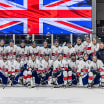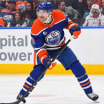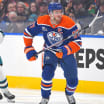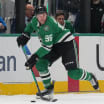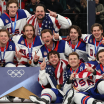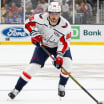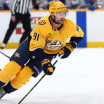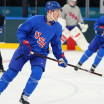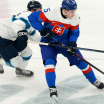CRANBERRY, Pa. -- It was the day after Game 1 of the Stanley Cup Final, which meant it was the day after Game No. 99 of the regular season and Stanley Cup Playoffs for Sidney Crosby.
The captain of the Pittsburgh Penguins had played well in a 3-2 victory against the San Jose Sharks. So well that coach Mike Sullivan called him "inspiring."
Penguins' Crosby always sees work to be done
Pittsburgh captain uses practices, off days to improve skills
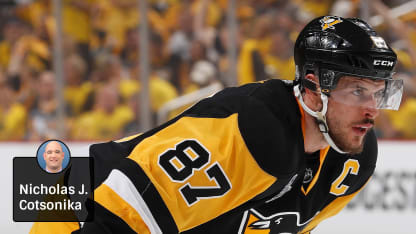
Crosby could have stayed off the ice Tuesday. Instead he participated in an optional practice with six teammates, only one of whom had played the night before: fourth-line forward Eric Fehr.
But no one was surprised to see Crosby on the ice. Not his coaches, not his teammates, not his family members.
"I grew up watching it," said his sister Taylor, a goaltender at St. Cloud State University, who was sitting the stands with their parents. "It seems pretty normal for me."
What is normal for Sidney Crosby is not normal for most NHL players, let alone most people. That's why he has maximized his talent and become a two-time winner of the Hart Trophy as the League's most valuable player and is a finalist this season. That's why you hear stories about his work ethic.
It's not just that he practices when he doesn't have to. It's not just that he has a routine, often skating the day after games and not participating in the morning skate the day of games, at least during the playoffs.
It's that he hits the ice with a plan to work on specific skills he can apply at specific times, and he can do it when there are fewer teammates practicing and no team systems to go over.
"Things happen in a game and you want to feel comfortable in certain situations out there," Crosby said. "Maybe there's something that happened multiple times that hasn't happened for a few games, and if it does happen again you want to make sure you have a good feel for it."
Said assistant coach Rick Tocchet: "There's certain things that we did a week or two ago that he wanted to do today because he felt that, 'hey, this could maybe be beneficial against the Sharks'. So we did a couple things that he wanted to do and we did some drills, and you kind of build from there."
With other players at the opposite end of the ice Tuesday, Tocchet took pucks and put them against the right-wing boards inside the blue line and stood like a defenseman as Crosby, a left-handed shot, worked on "loading." Crosby shifted from his backhand to his forehand in front of Tocchet and shot in one motion, over and over again.
"Anybody can just shoot pucks," Tocchet said. "He's doing it with a certain stress on his body. He's going from here to here."
Tocchet took pucks and put them against the end boards and passed to Crosby at the right hash marks for him to take one-timers. Except Tocchet didn't make tape-to-tape passes, and Crosby didn't aim for the middle of the net. Tocchet made hard passes into hard spots, like between Crosby's skates and away from his body, and Crosby tried to pick the upper right corner, the lower left corner, the sliver of space under the crossbar.
"Anybody can stand there for three seconds, massage the puck and then shoot it hard," Tocchet said. "These guys shoot it quick and shoot it in awkward positions. I'm a big believer in shooting pucks in awkward positions because hockey's awkward sometimes. It's not perfect."
Tocchet took pucks and put them against the left-wing boards inside the blue line, stood like a defenseman and stuck out his stick as Crosby toe-dragged to the middle and took shots on goal.
"There's probably another 10 things we could do but we've got to kick him off the ice," Tocchet said. "Sometimes I'll look at the clock. He knows his body too, but you've just got to make sure he's not out there too long. He leaves a lot of stuff on the ice so you've got to make sure that he gets a lot of rest."
That's Sid. That's always been Sid. His sister is eight years and seven months younger. She was 6 when he left home in Cole Harbour, Nova Scotia, and didn't start playing hockey until she was 10. Still, she learned from watching not just his play but his discipline.
"Whether it was going and working out early in the morning or eating the right things or going to bed early, it was always something that he made a priority," Taylor Crosby said. "Looking back on those memories now, it's something that I try to do."
When the Penguins acquired forward Bill Guerin in 2008-09, Crosby was 21 and in his fourth NHL season; Guerin was 38 and in his 17th. Crosby got on him to do extra work. If they were going to play together, they had to be on the same page.
"I was from the generation before," said Guerin, now the Penguins' assistant general manager. "I practiced certain ways and had habits, and he pushed me. The way he approaches the game, yeah, there is a plan. I think he chips away at it every day. … He works on things you might not think a superstar would work on; basic stuff. He just works on his game."
You can see the results in general, from his faceoffs to his backhand shot to his tipping ability to how he kicks the puck from his skates to his stick better than maybe anyone else in hockey. You can see them on specific plays too.
The power-play goal he scored in Game 3 of the Eastern Conference Final against the Tampa Bay Lightning, when his shot went under the bar from the right dot?
"That's from taking one-timers here," Tocchet said.
That goal he scored in Game 6 against the Lightning, when he weaved through three defenders, broke in on goal and slipped the puck between the goalie's pads?
"That's the loading and the shift and shooting the puck really quick," Tocchet said.
At Stanley Cup Final media day on Sunday, Sharks center Joe Thornton called hard work, "an addiction that I have and I think probably most good players have." Sidney Crosby didn't use the word addiction, and neither did his sister. But it was the day after Game No. 99 of the regular season and playoffs for him, which meant it was the day after Game 1 of the Stanley Cup Final. The Penguins have a 1-0 lead in the best-of-7 series; Game 2 is at Consol Energy Center on Wednesday (8 p.m. ET, NBCSN, CBC, TVA Sports). They're three wins from the Cup.
"There's a couple weeks left in the season here," Crosby said. "These are important, important games. And if there's something you can improve on and get better and make sure that you're ready if it does happen in a game, it's a great opportunity to do it."
There will be time to rest later.
"Obviously he knows his limits," Taylor Crosby said. "He's not stupid. He knows when he needs to take a break and knows when to settle down. But I think he's a competitor and he's going to do whatever it takes to win. I think he's going to work until he can't anymore. I just think he doesn't know any different. He just knows to work hard."

